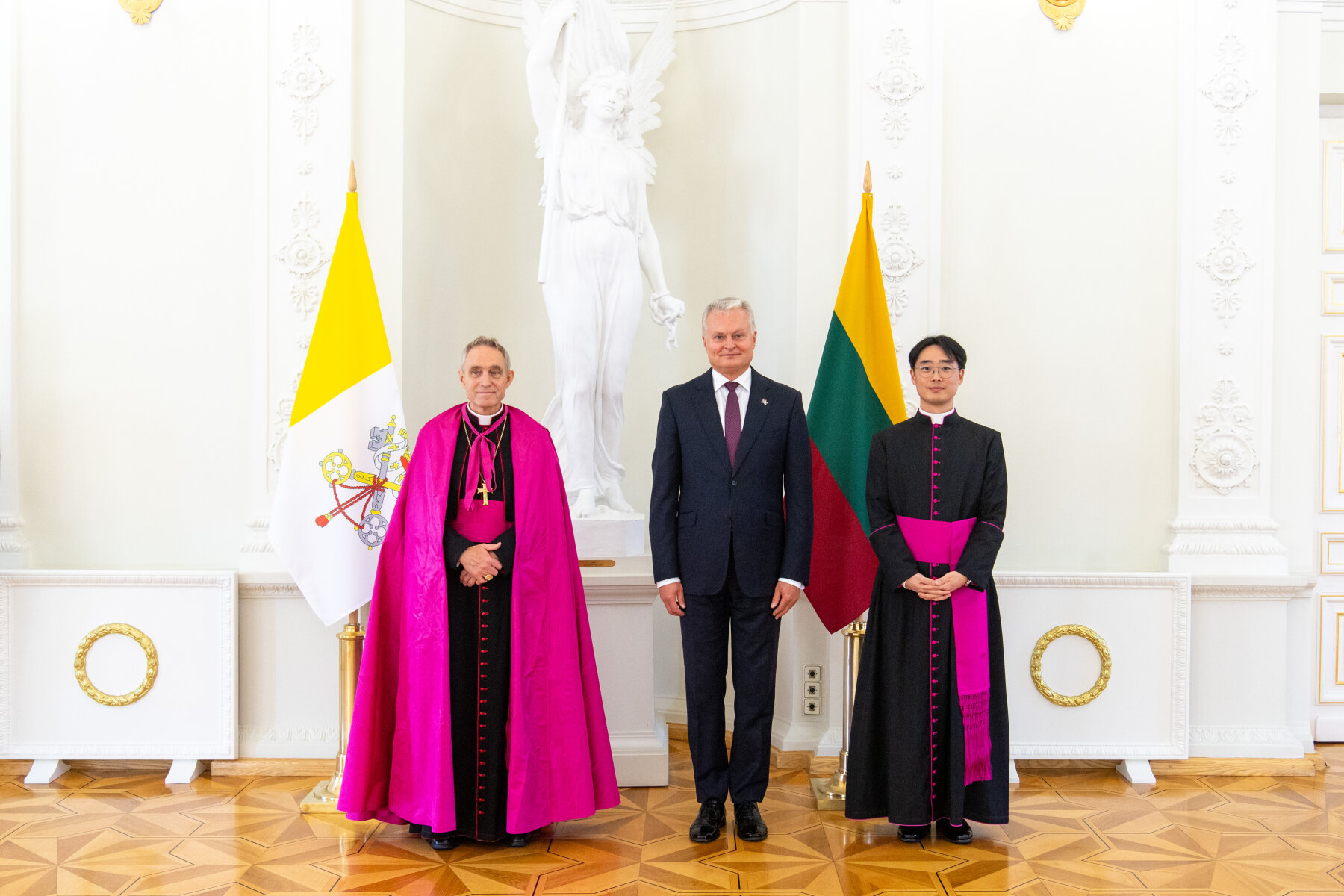(ZENIT News / Vilnius, 09.10.2024).- In a significant diplomatic move, Archbishop Georg Gänswein has formally assumed his position as the Vatican’s Apostolic Nuncio to the Baltic nations of Lithuania, Latvia, and Estonia. On Friday 6 September, the German prelate presented his credentials to Lithuanian President Gitanas Nausėda, marking the official start of his new diplomatic mission. Gänswein, once the trusted private secretary to Pope Benedict XVI, now steps into a role that bridges the Vatican’s relationship with a historically Catholic region during a time of heightened geopolitical tension.
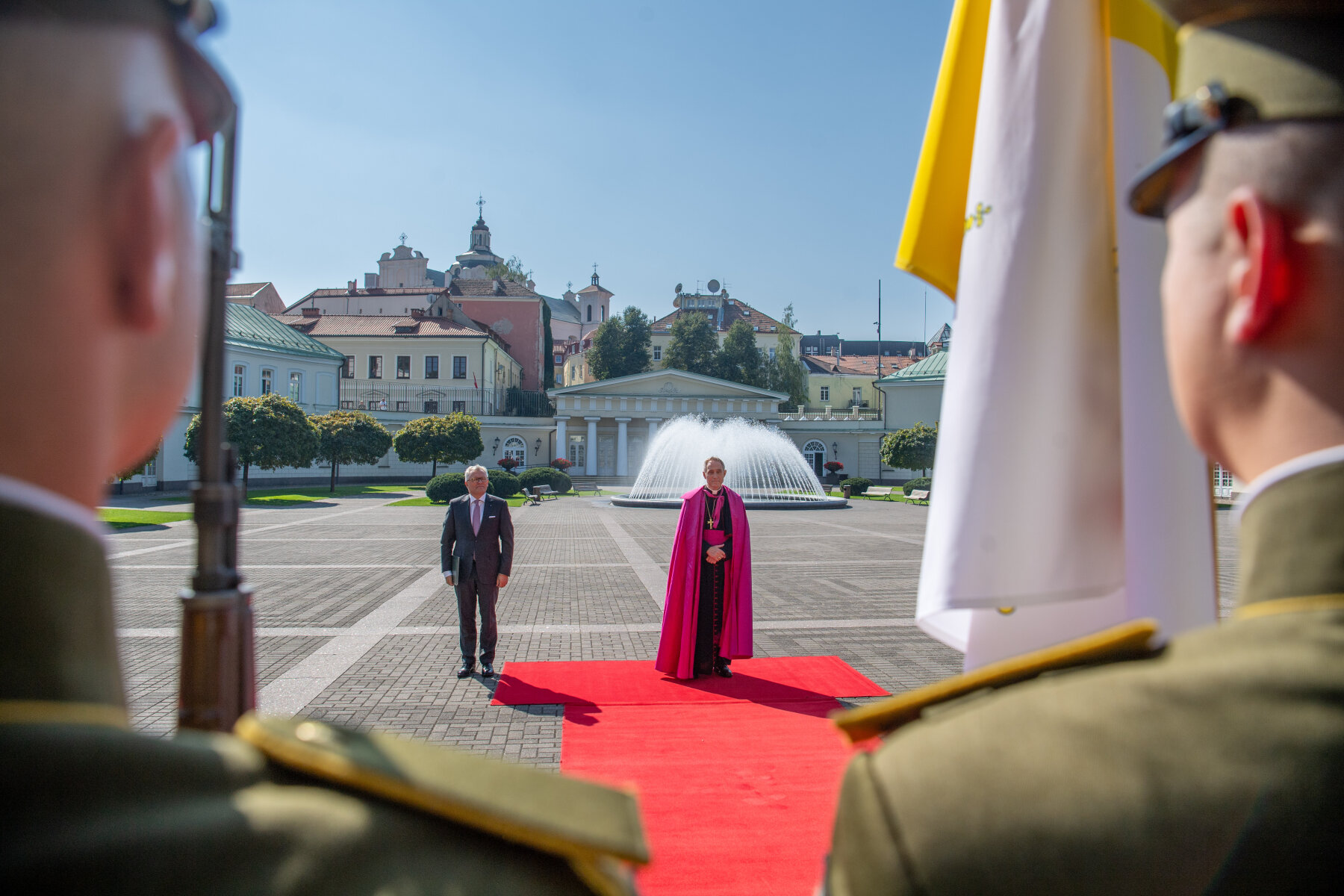
Symbolic Ceremony Amid Strong Vatican-Lithuanian Ties
Gänswein’s arrival in Vilnius was marked by a ceremonious display, with photographs from the Lithuanian presidential office capturing the archbishop in traditional clerical attire—a black cassock accented with a violet sash and cape—walking along the red carpet to the Presidential Palace. There, he delivered his credentials against the backdrop of the Lithuanian and Vatican flags, symbolizing the enduring diplomatic ties between the Holy See and Lithuania.
Lithuania’s relationship with the Vatican is particularly unique. Throughout its history, the country has looked to the Catholic Church as a source of spiritual and political resilience, especially during the Soviet Union’s occupation. During their meeting, President Nausėda reminded Gänswein that the Holy See had never recognized the Soviet annexation of Lithuania, a testament to the Vatican’s long-standing support for the Baltic nation’s independence.
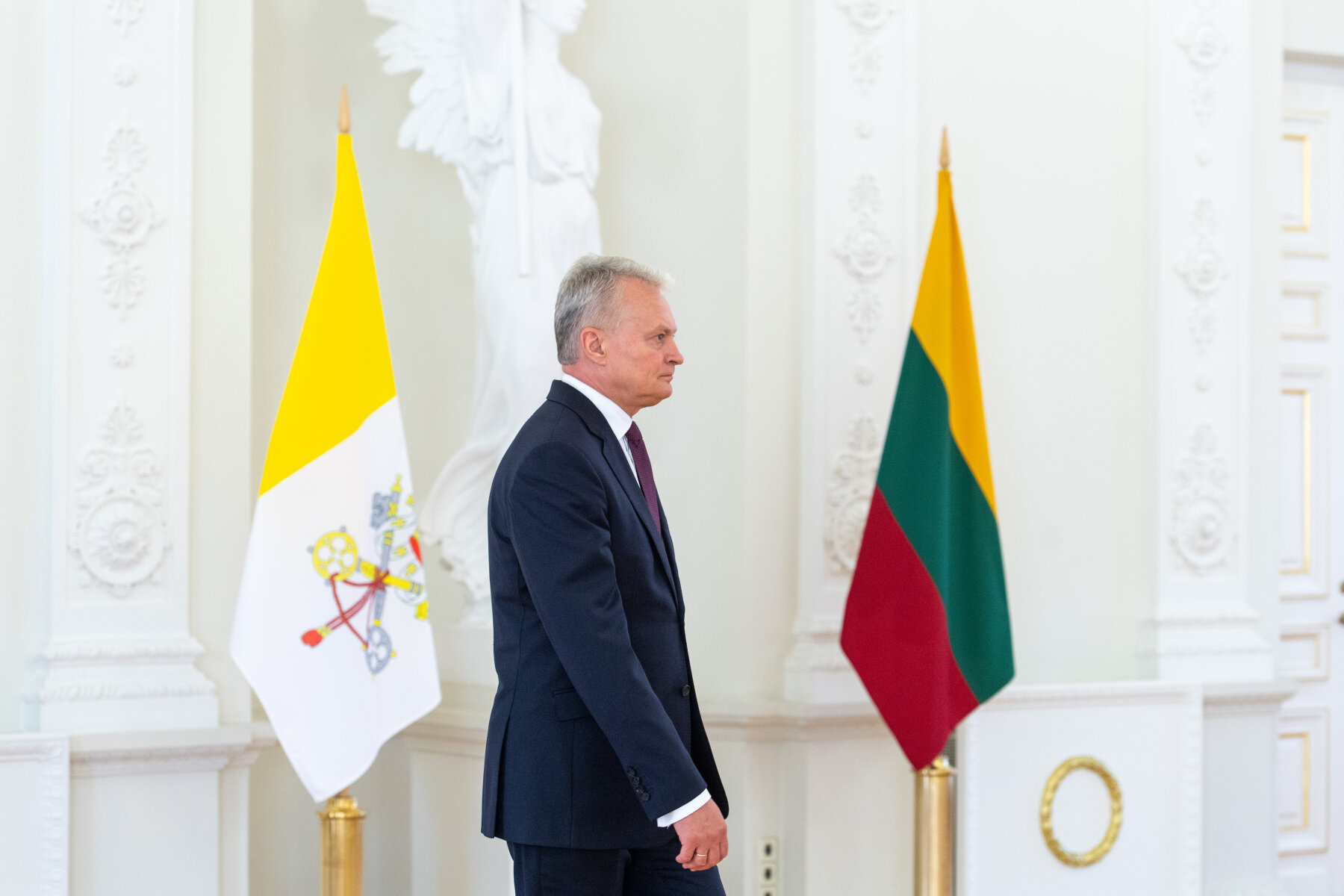
Nausėda also congratulated the archbishop on his recent 40th anniversary of ordination, a milestone celebrated earlier this year. Gänswein’s appointment is seen as a continuation of the Vatican’s diplomatic mission, but it also reflects the strong religious and historical ties that have shaped the relationship between Lithuania and the Catholic Church.
Lithuania’s Call for Support for Ukraine
The meeting between Nausėda and Gänswein also provided an opportunity for the Lithuanian leader to highlight the importance of international support for Ukraine amidst the ongoing Russian invasion. Nausėda called upon the global community, including the Vatican, to stand firmly with Ukraine in its fight for sovereignty. Stressing that any outcome short of a Ukrainian victory would pose serious risks for European security, he emphasized the need for unwavering support to ensure the nation’s independence and territorial integrity.
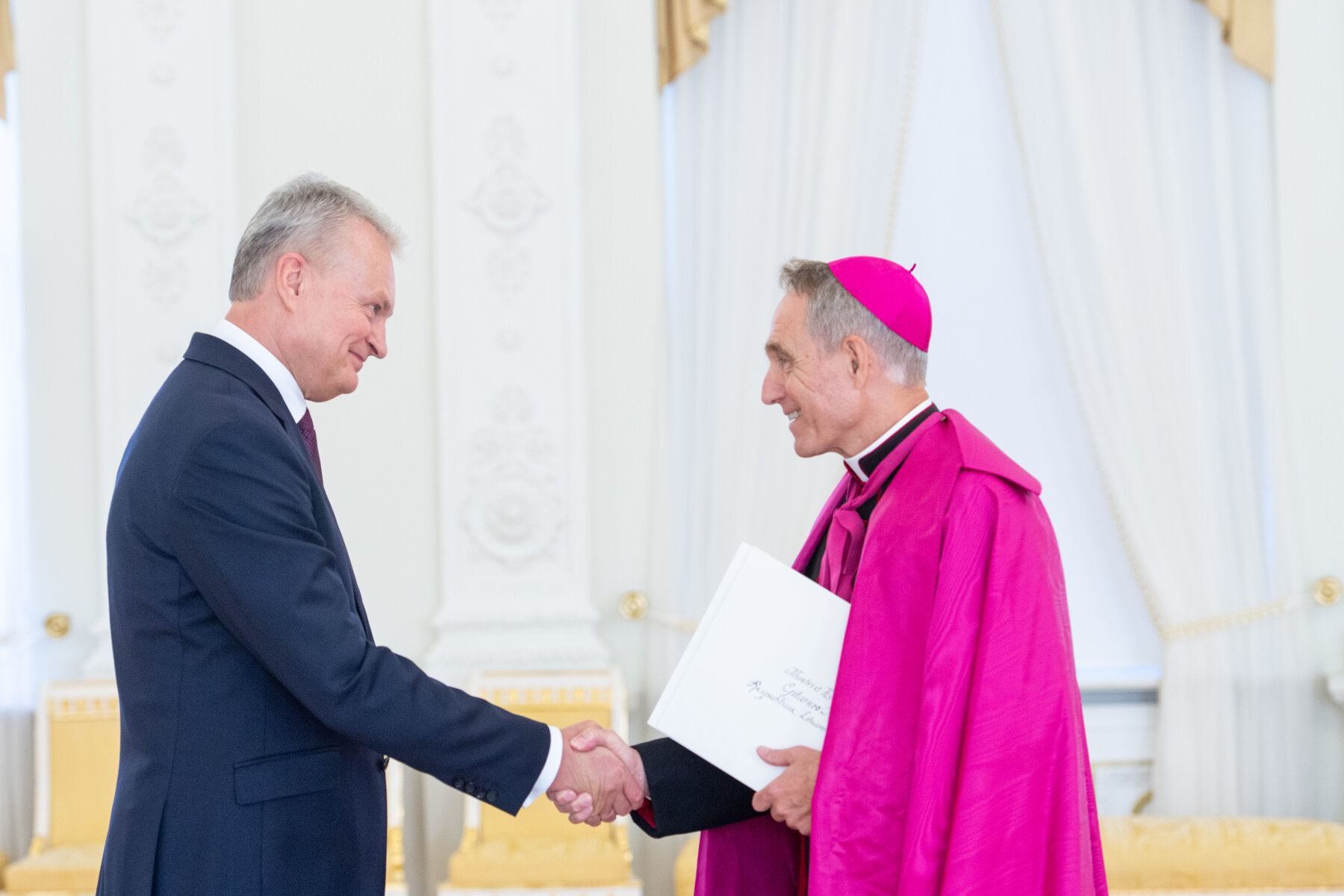
Lithuania’s solidarity with Ukraine is deeply personal, given its own history of occupation. Nausėda drew a parallel between Pope John Paul II’s famous exhortation to Lithuanians during his 1993 visit—»Do not be afraid!»—and the present-day struggle faced by Ukrainians. The message of courage, once pivotal to Lithuania’s post-Soviet recovery, now resonates powerfully in the context of the war in Ukraine.
In his discussion with Gänswein, Nausėda also praised the Catholic Church’s ongoing humanitarian efforts for Ukrainian refugees. He urged the Vatican to continue its vocal support for Ukraine, underscoring that peace in Europe hinges on Ukraine’s ability to defend itself successfully. As Gänswein begins his diplomatic role in the region, Lithuania hopes the Holy See will maintain its moral and spiritual advocacy for Ukraine, as it did for Lithuania in its time of need.
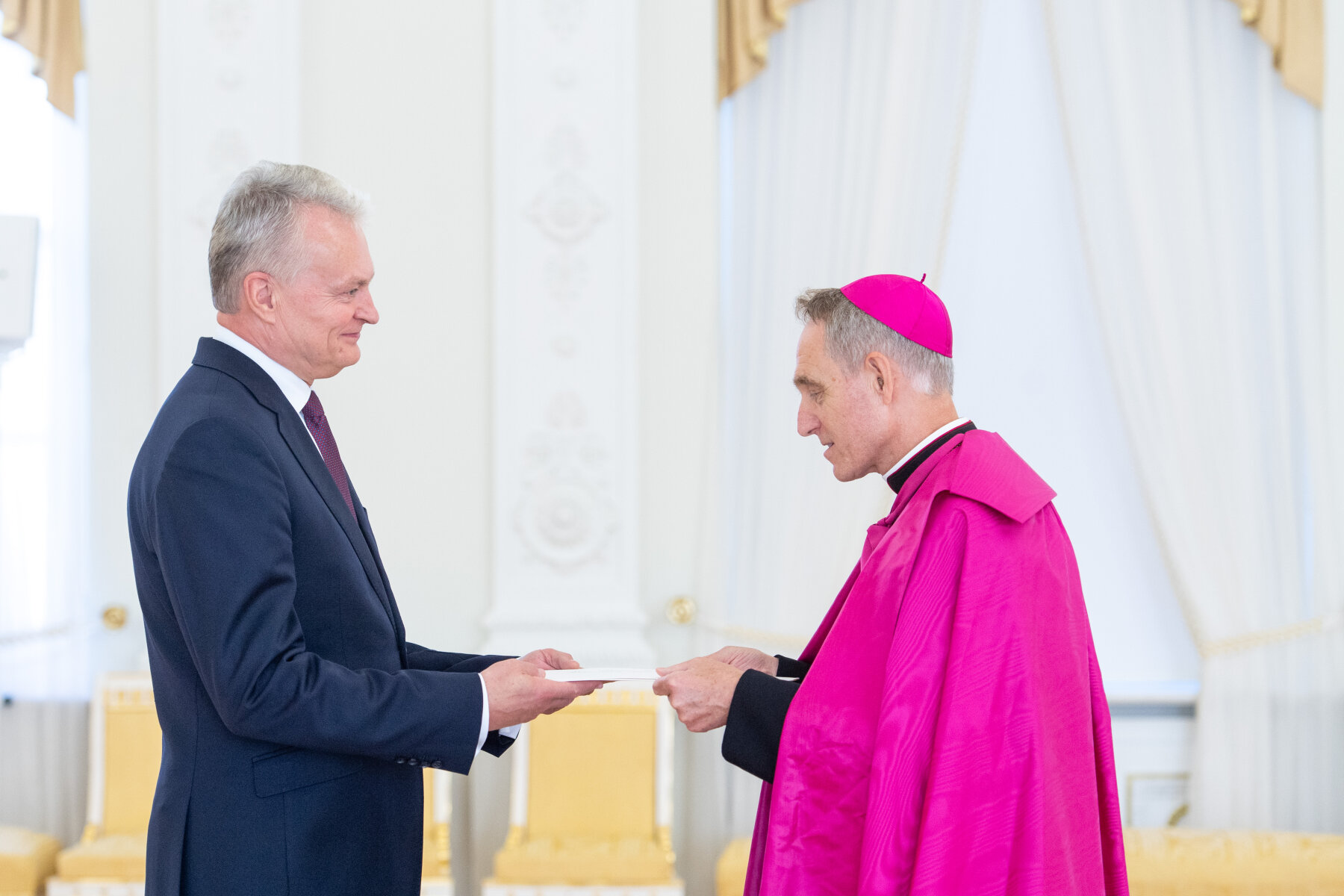
Gänswein’s Path from Secretary to Diplomat
Archbishop Gänswein’s appointment to the Baltic region comes after a period of transition in his ecclesiastical career. Following the passing of Pope Benedict XVI, Gänswein was transferred back to his home archdiocese of Freiburg by Pope Francis in 2023 but without any specific role assigned. His new appointment as Apostolic Nuncio to Lithuania, Latvia, and Estonia in June 2024 signals a fresh chapter in his career, moving from his close ties with the late Benedict XVI to a critical diplomatic position in one of Europe’s most geopolitically sensitive regions.
Gänswein, who served as Benedict’s private secretary for many years and was one of the most recognizable figures in the Vatican under the former pope, now takes on a role where diplomacy and faith intersect. As the Vatican’s representative in the Baltics, he will be responsible for maintaining and enhancing the Church’s relations with these nations, each with its own complex history of faith, sovereignty, and regional security concerns.
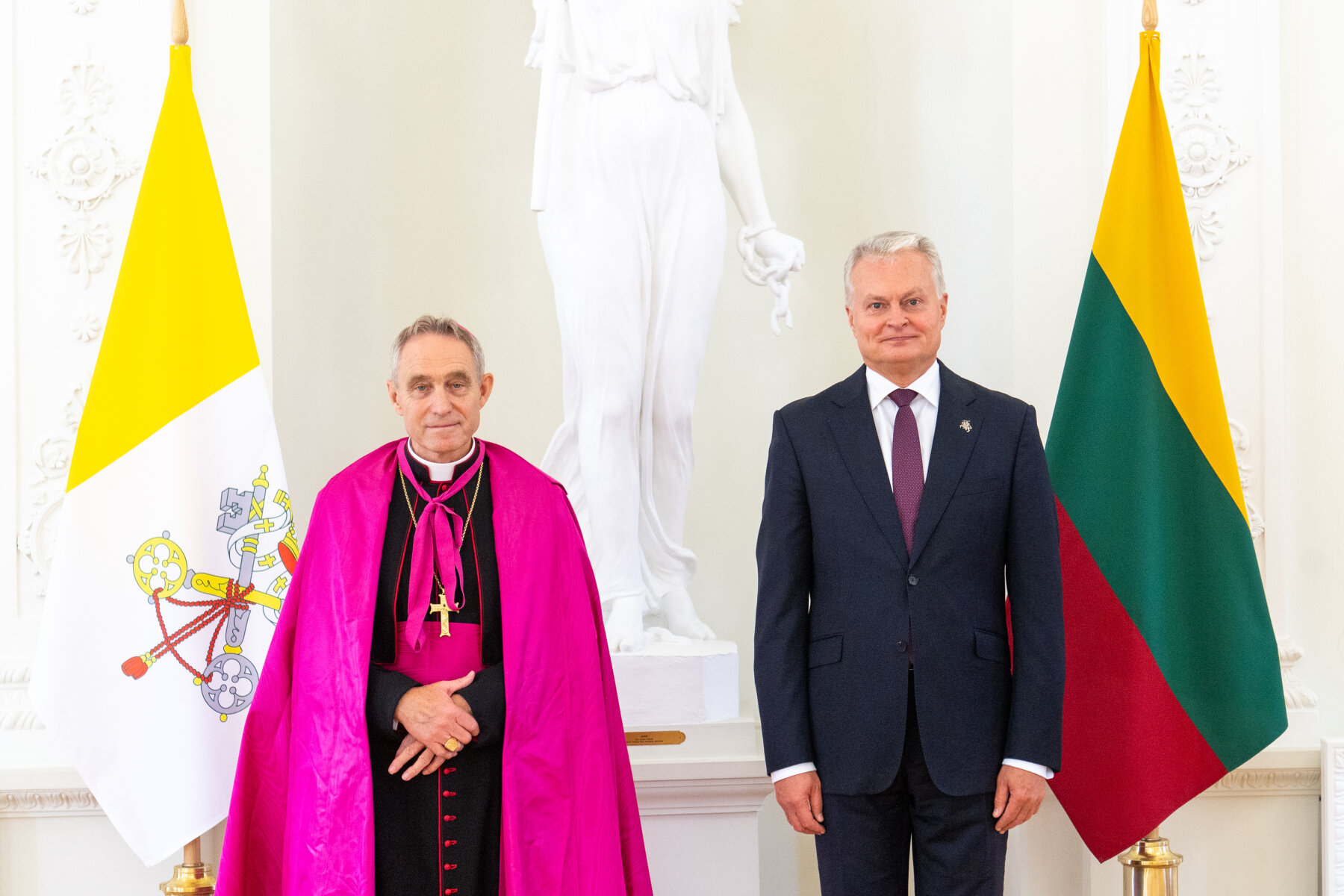
His arrival in the Baltics comes at a crucial moment, with tensions in Eastern Europe escalating due to Russia’s aggression against Ukraine. The Holy See’s involvement in global diplomacy has historically emphasized peace and reconciliation, and Gänswein’s position will likely involve navigating these complex issues while reinforcing the Vatican’s stance on human rights, religious freedom, and international cooperation.
A Mission for the Future
As Gänswein embarks on his new mission, he steps into a role that not only reflects the continuity of Vatican diplomacy but also responds to the urgent needs of the region. Lithuania’s Catholic identity remains strong, and its relationship with the Holy See is one built on mutual respect and shared history. At the same time, the evolving political landscape, particularly regarding Ukraine, requires the Vatican’s moral authority to support peace and justice in Europe.
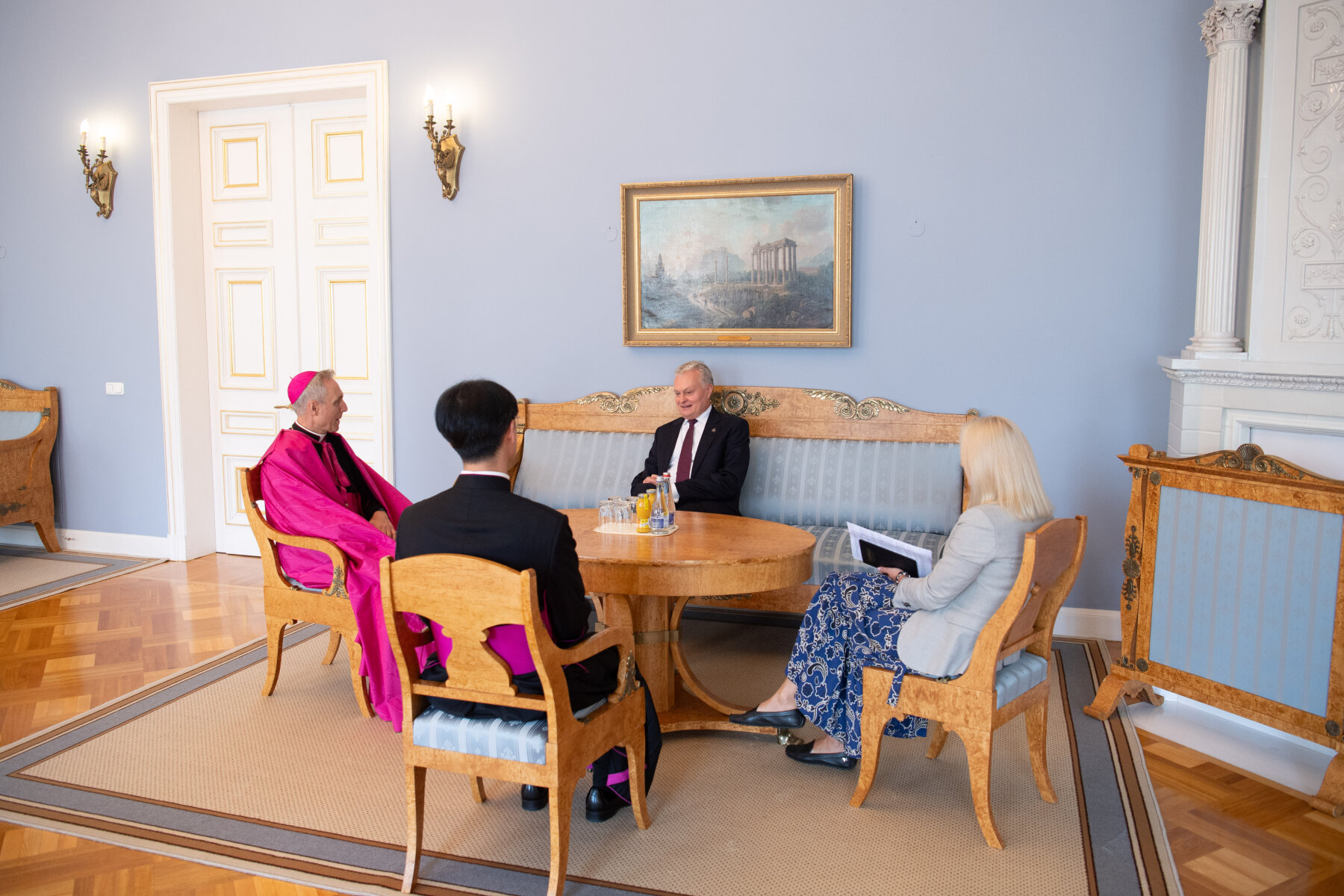
For Archbishop Gänswein, this role is an opportunity to shape the Church’s diplomatic voice in a critical region, while offering spiritual and humanitarian leadership during turbulent times. His experience at the Vatican, coupled with his deep connection to the late Benedict XVI, positions him uniquely to navigate the challenges ahead and strengthen the Church’s role in promoting peace, stability, and faith in the Baltics and beyond.
Thank you for reading our content. If you would like to receive ZENIT’s daily e-mail news, you can subscribe for free through this link.
